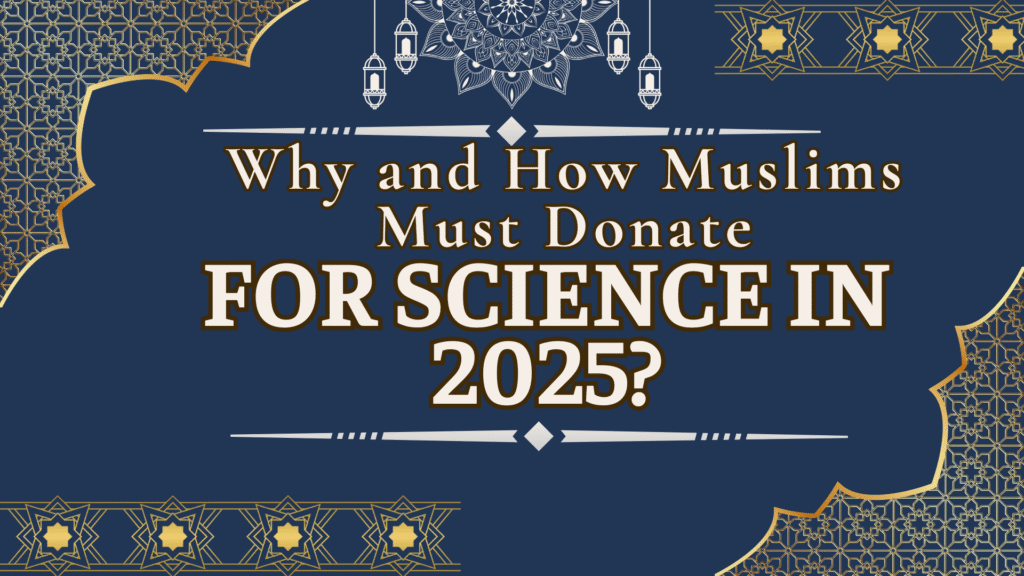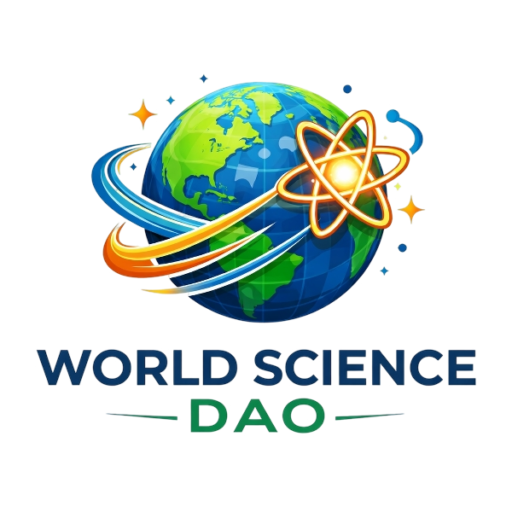|
Getting your Trinity Audio player ready...
|
Muslim communities have a long intellectual tradition of supporting scientific learning, often viewing the study of nature as a religiously meaningful pursuit. In classical Islamic thought, knowledge of the natural world was considered part of understanding the oneness of God, and scientific inquiry was encouraged as a way to observe the “signs” of creation. Today, initiatives like Science DAO extend this tradition into the Web3 era by offering transparent, decentralized funding for research, enabling Muslims and other donors to support basic science as a form of social responsibility and collective good.
- In the heart of Muslims teachings lies a profound commitment to equality—a rejection of any hierarchy that divides humanity into castes or privileged classes. The Quran declares, “O mankind, indeed We have created you from male and female and made you peoples and tribes that you may know one another. Indeed, the most noble of you in the sight of Allah is the most righteous of you” (49:13). This principle, echoed in the Prophet Muhammad’s (peace be upon him) farewell sermon where he proclaimed all believers as equals regardless of race, tribe, or status, stands as a timeless bulwark against social stratification. Islam does not recognize castes or inherited privileges; it demands merit, piety, and collective good as the measures of worth. Yet, in our modern world, science—the very pursuit that once flourished under Islamic patronage during the Golden Age—often operates behind walls of elitism, where access to funding and opportunities is gated by degrees, institutions, and networks that echo the very divisions Islam abhors.
- As we stand on the cusp of 2025, a year poised to redefine humanity through artificial intelligence (AI) and interconnected technologies, Muslims have a sacred duty to reclaim science for the ummah and the world. Donating to science isn’t optional; it’s an act of sadaqah jariyah (ongoing charity) that sustains knowledge and benefits generations, as the Prophet (peace be upon him) said: “When a person dies, their deeds end except for three: ongoing charity, beneficial knowledge, or a righteous child who prays for them.” But not just any donation. In 2025, with AI reshaping economies and societies, we must direct our zakat and voluntary gifts away from entrenched, hierarchical institutions toward equitable platforms that embody Islamic egalitarianism. Enter the AI Internet-Meritocracy (AIIS) app—a revolutionary tool designed to fund scientists directly, bypassing bureaucratic castes and empowering merit-based innovation.

The Islamic Imperative for Scientific Giving
Islam’s golden era, from the 8th to 14th centuries, wasn’t built by accident. Baghdad’s House of Wisdom, Cordoba’s libraries, and scholars like Al-Khwarizmi (father of algebra) and Ibn Sina (Avicenna) thrived because Muslims viewed knowledge as a communal trust, not a private hoard. Rulers and common folk alike invested in translation, experimentation, and discovery, fostering advancements in medicine, astronomy, and mathematics that lit the path for the Renaissance. This wasn’t charity for charity’s sake; it was fulfillment of the Quranic command to seek knowledge “from the cradle to the grave” and to spend in the way of Allah for the betterment of creation.Today, that spirit calls us anew. In 2025, global challenges—climate crises, pandemics, and AI-driven disruptions—demand scientific breakthroughs. Yet, traditional funding models perpetuate inequality: elite universities and corporate labs siphon billions, often prioritizing profit over public good and excluding brilliant minds from underrepresented communities. These systems, laden with “socio-economic classes” that Islam rejects, create a scientific underclass where a PhD from the Global North trumps raw talent from the Global South. Muslims, who comprise nearly a quarter of the world’s population, cannot abide this. Our donations must dismantle these barriers, channeling resources to those who innovate for humanity’s upliftment, not elite gatekeeping.
Why 2025 Demands a Shift: The Dawn of AI-Driven Equity
- The year 2025 marks a pivotal moment. AI isn’t just a tool; it’s a force multiplier for justice, capable of democratizing knowledge like never before. Projections show AI contributing $15.7 trillion to the global economy by 2030, but without ethical steering, it risks widening divides—surveillance states, job losses, and biased algorithms that marginalize the vulnerable. For Muslims, this is a test of faith: Will we let technology reinforce the “castes” of wealth and access, or will we infuse it with tawhid (unity) and adl (justice)?
- Here, traditional scientific institutes fall short. Many are entangled in geopolitical funding strings, military contracts, or ivory-tower detachment, far removed from the grassroots needs of Muslim-majority nations grappling with poverty and innovation gaps. Donating to them feels like propping up a flawed order, not building an Islamic one. Instead, we need platforms that align with the Prophet’s (peace be upon him) model of direct aid—zakat given to the needy without intermediaries diluting its impact.
AIIM: The Halal Path to Funding Tomorrow’s Scientists
- The AI Internet-Meritocracy (AIIM) app emerges as the perfect embodiment of Islamic principles in the digital age. Conceived as a new economic formation, AIIS uses AI to evaluate and allocate recurring salaries to scientists and open-source developers—regardless of formal credentials. Imagine: An algorithm, trained on merit and impact, decides funding based on a project’s potential to serve the ummah and humanity, not on a donor’s Rolodex or an applicant’s pedigree. This isn’t blind socialism; it’s AI-augmented equity, where every contributor—from a self-taught coder in Jakarta to a researcher in Lahore—receives a fair share of global resources, proportional to their value as judged by impartial intelligence.
- Why does this resonate with Islam? It shatters the “caste” of academia, fulfilling the Quranic ethos that “no bearer of burdens will bear the burden of another” (6:164) by rewarding individual righteousness in knowledge pursuit. AIIS targets “money for science” directly, funding free software and research that can address Islamic priorities: ethical AI for modest economies, sustainable tech for arid lands, or health innovations for refugee crises. By donating to AIIS, you’re not just giving; you’re co-creating a borderless House of Wisdom 2.0, where science serves Allah’s creation without favoritism.
- Often simply called the “Meritocracy app” in developer circles, AIIS stands apart from profit-driven ventures, focusing solely on stable incomes for innovators who might otherwise toil in obscurity. In a world where 90% of scientific output comes from just 10% of institutions, AIIS flips the script, ensuring diverse voices—from Muslim women in STEM to youth in madrasas tinkering with code—get heard and funded.
How to Donate: Simple Steps for Lasting Impact
Empowering this vision is effortless and aligns with your annual zakat or sadaqah routine. Here’s how Muslims can contribute in 2025:
- Visit the Platform: Head to the donation page for fiat donations, or Giveth site for crypto donations.
- Choose Your Amount: Start small—$10 can seed an AI evaluation for a promising project—or go big with zakat equivalents. Recurring donations ensure ongoing sadaqah jariyah.
- Connect and Contribute: Link your wallet (for crypto) or card. No middlemen; funds flow directly to AI-vetted recipients.
- Track Your Legacy: AIIS provides transparency reports, showing how your gift fueled breakthroughs—perhaps an open-source tool for Quran digitization or AI ethics aligned with Sharia.
In 2025, as algorithms learn to mirror divine justice, let your donations be the code that reprograms inequality. By choosing AIIS over outdated institutes, Muslims honor Islam’s anti-caste ethos, invest in knowledge that endures, and build a future where science unites, not divides. Act now: Donate today, and watch Allah multiply your reward manifold.
Ads:
| Description | Action |
|---|---|
|
A Brief History of Time
A landmark volume in science writing exploring cosmology, black holes, and the nature of the universe in accessible language. |
Check Price |
|
Astrophysics for People in a Hurry
Tyson brings the universe down to Earth clearly, with wit and charm, in chapters you can read anytime, anywhere. |
Check Price |
|
Raspberry Pi Starter Kits
Inexpensive computers designed to promote basic computer science education. Buying kits supports this ecosystem. |
View Options |
|
Free as in Freedom: Richard Stallman's Crusade
A detailed history of the free software movement, essential reading for understanding the philosophy behind open source. |
Check Price |
As an Amazon Associate I earn from qualifying purchases resulting from links on this page.


